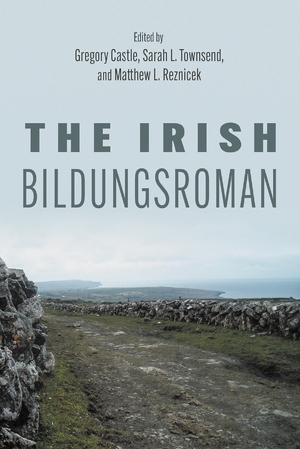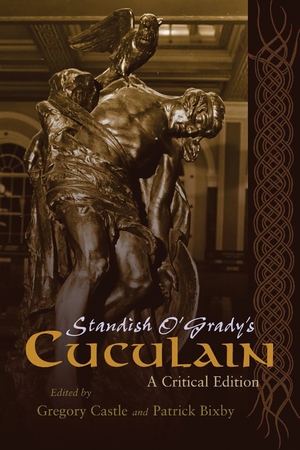"Ably edited and filled with fresh perspectives, The Irish Bildungsroman valuably complicates our understanding of a beloved and oft-studied genre. This exciting collection not only examines the complex history of such fictions of development, looking across centuries from the Act of Union to the present day, but also helps us to appreciate more fully the formidable conceptual provocations of the Irish bildungsroman."—Paige Reynolds, author of Modernism in Irish Women's Contemporary Writing
"Attuned to both local and global narratives/theories, this rich and diverse collection expands our understanding of the genre and deepens our critical engagement with Irish literature."—Derek Hand, author of The History of the Irish Novel
"What is most masterful about the way this collection has been set up is that the reader can trace, from the first essay to the last, the novels’ engagement with a group of central subjects and concerns, and the ways in which the Irish Bildungsroman over the span of two centuries reflects, develops, extends, and resists the classical model’s treatment of subject formation and social integration."—Rachael Sealy Lynch, author of Tuberculosis and Irish Fiction, 1800–2022: A Lingering Condition
"The Irish Bildungsroman showcases the dazzling diversity of Irish writers’ engagements, from the Act of Union to the present, with perhaps the most enduring literary genre."—Cóilín Parsons, author of The Ordnance Survey and Modern Irish Literature
Description
The classical Bildungsroman charted an idealized path of human development: the harmonizing of individual desires and societal norms in the formation of a well-rounded liberal subject. But what happens when this Enlightenment blueprint for self-cultivation runs up against the particularities of a colonial society riven by nationalism, revolution, and uneven modernization?
The Irish Bildungsroman provides the first comprehensive study of how this quintessentially bourgeois and European genre is transformed and reinvented by Irish writers from the Act of Union to the present day. Through incisive readings of over two centuries of Irish novels, the volume’s contributors illuminate the diverse narrative strategies Irish authors have employed to depict personal formation within colonial and postcolonial communities shaped by competing religious, class, gender, and ethnic interests.
Periodized into three major sections, the book maps the evolution of the Irish Bildungsroman across key historical junctures: the rise of cultural nationalism in the nineteenth century, the revolutionary period and emergence of the postcolonial state in the early twentieth century, and more recent waves of globalization that have reconfigured Irish identity. From the post-Union novels of Maria Edgeworth and Sydney Owenson to contemporary immigrant fiction, The Irish Bildungsroman excavates a rich vein of self-reflexive writing that creatively reworks this genre to expose the fault lines of liberal humanism and to imagine new modes of selfhood.
About the Author
Gregory Castle is professor emeritus of English at Arizona State University. He is the author of numerous publications, including Reading the Modernist Bildungsroman.
Sarah L. Townsend is associate professor of English at the University of New Mexico.
Matthew L. Reznicek is associate professor of medical humanities at the University of Minnesota Medical School.
February 2025




